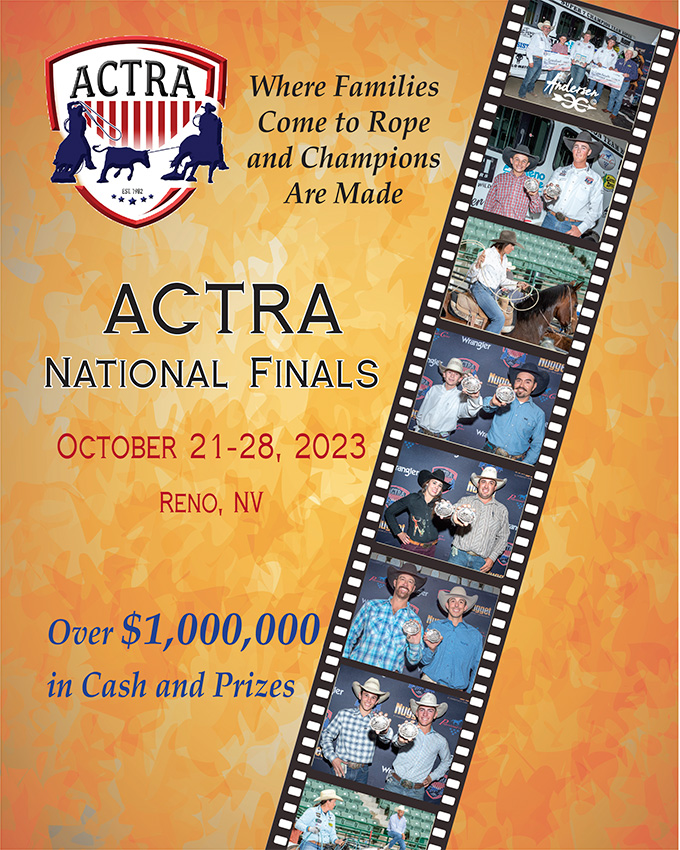By Devin Yanez Griffith
Special to Ropers Sports News
Not many people look forward to a trip to the Department of Motor Vehicles. Some people may say the DMV is only exciting when you turn 16, vying to earn your driver’s license.
However, some Californians pulling specific trailers may be finding themselves back at the DMV sooner than anticipated.
Julie Woods is a safety consultant for her business called Cirkl Specialized Training and teaches safety classes at the DMV located in Fresno, California.
“We host classes based on need,” Woods said. “So, if somebody calls us and says they need help in their area, I say, ‘okay sure’.”
Within the past year, Woods has found herself teaching classes for people needing their Class A driver’s license to pull trailers with a Gross Vehicle Weight Rating of more than 10,000 pounds, Woods said. In addition to this, the federal standard also states a Class A driver’s license is required for a combination GVWR of 26,001 pounds between a truck and trailer.
Contrary to popular belief, GVWR does not refer to the actual weight of truck and trailer. Instead, the GVWR is the potential weight each vehicle can haul, Woods said.
The DMV developed this requirement in 1989; however, Californians have felt more pressure recently to follow this regulation, possibly because of new leadership at the Federal Motor Carrier, Woods said.
“In 2017, the DMV issued a three-page bulletin that addressed the issue,” Woods said. “Once that hit, everybody realized that they weren’t playing around anymore.”
In their Recreational Vehicles and Trailers handbook, California Highway Patrol states people attempting to obtain their Class A License must pass the skills test, vision test, driving test and other requirements. Before taking these tests, people also have to pass a pre-trip inspection by identifying different items on a vehicle, as stated in the Recreational Vehicles and Trailers handbook.
Horse trainer Sarah Faught recently completed her Class A training. However, she had been attempting to obtain her license for quite some time.
“I was kind of procrastinating until they started cracking down on people,” Faught said. “People have been getting pulled over a lot more frequently.”
“The roads are getting more clogged up in California,” Faught said. “There are a lot of people out there driving these huge living quarter trailers without trucks that are the proper weight to pull them.”
If you are found illegally driving without a Class A license, you are asked to wait until someone with the appropriate license can drive your vehicle for you, Faught said.
Although this regulation began seeing more attention in 2019, COVID-19 has become an obstacle for people trying to obtain their license this year, Faught said.
“There’s a lot of trainers out there driving around with their permits right now,” Faught said. “There’re trying to get into the DMV, and unfortunately [our local DMV] is not taking any appointments right now.”
This permit is called a Commercial Learner’s Permit and only lasts 180 days, Faught said. It also requires the permit holder to take the driving skills test at least 14 days after getting their permit. Faught added that COVID-19’s effect on DMV availability and short nature of the CLP has put many people at risk of being pulled over and stuck waiting on the side of the road with a load of horses.
Kirk Wilbur, the vice president of government affairs at the California Cattlemen’s Association, also has taken note of the effect of this Class A requirement for farmers and ranchers.
“Sometimes ranchers and some [California Highway Patrol] troopers tend to misunderstand the Class A CDL requirement,” Wilbur said. “There are some instances where farmers and ranchers are able to haul their own livestock or other commodities with a Class C license.
“As a result, every couple of years CCA members are wrongly warned for violating the Class A CDL requirement,” Wilbur said. “This requires organizations like CCA, Farm Bureau or others to clarify the law for CHP and ranchers.”
One situation that sometimes causes confusion is the exception that allows use of a Class C license for hauling “exclusively in the conduct of agricultural operations,” Wilbur said.
Woods also took note of this exemption.
“The problem is [this exemption] is very specific,” Woods said. “It says farming operation, which means from farm to farm.
“If I haul my cattle from one pasture to another, I could use that exemption,” Woods said. “It is 150 miles and farm to farm. The minute I unload those cows and throw my horse in the back to compete at a gymkhana, I no longer qualify for that exemption.”
Although some inconveniences come with Class A requirements, the benefits of driving legally are important, Woods said.
“You have to realize [in other states] they’ll pull you over because they have the same restrictions,” Woods said. “They’ll get you for not being licensed.
“As far as really affecting agriculture itself, I don’t think it’s really changed the industry,” she added.
Pam Wilken is the owner of Central Coast Trailers, a trailer dealer located in Paso Robles, California. Their business offers living quarter trailers, horse trailers, livestock trailers and many other options. The Class A requirement has greatly affected her business and her customers’ lives, Wilken said.
‘We have completely lost [living quarter trailer] sales because of the regulation that could possibly force ranchers to stop their normal routines while trying to get legal to pull livestock trailers,” Wilken said. “Unfortunately, it is a very misunderstood law that has caused grief for thousands of law-abiding citizens. I hope it gets repealed.”
While there are a variety of opinions concerning the requirement of a Class A license, one thing is for sure; it is important to understand the regulations behind it. Not many people enjoy a trip to the DMV, but even fewer people enjoy being pulled over.
















